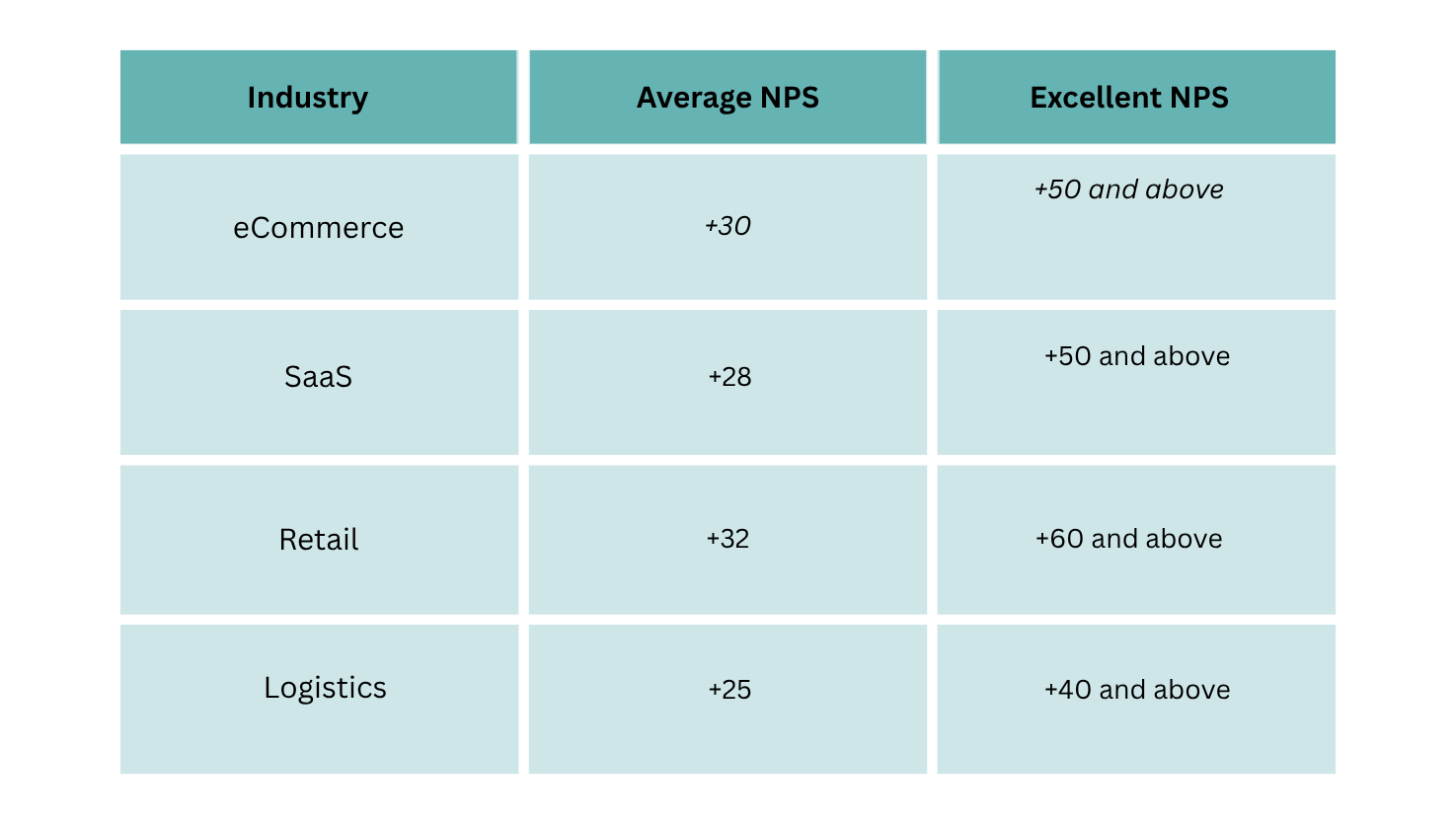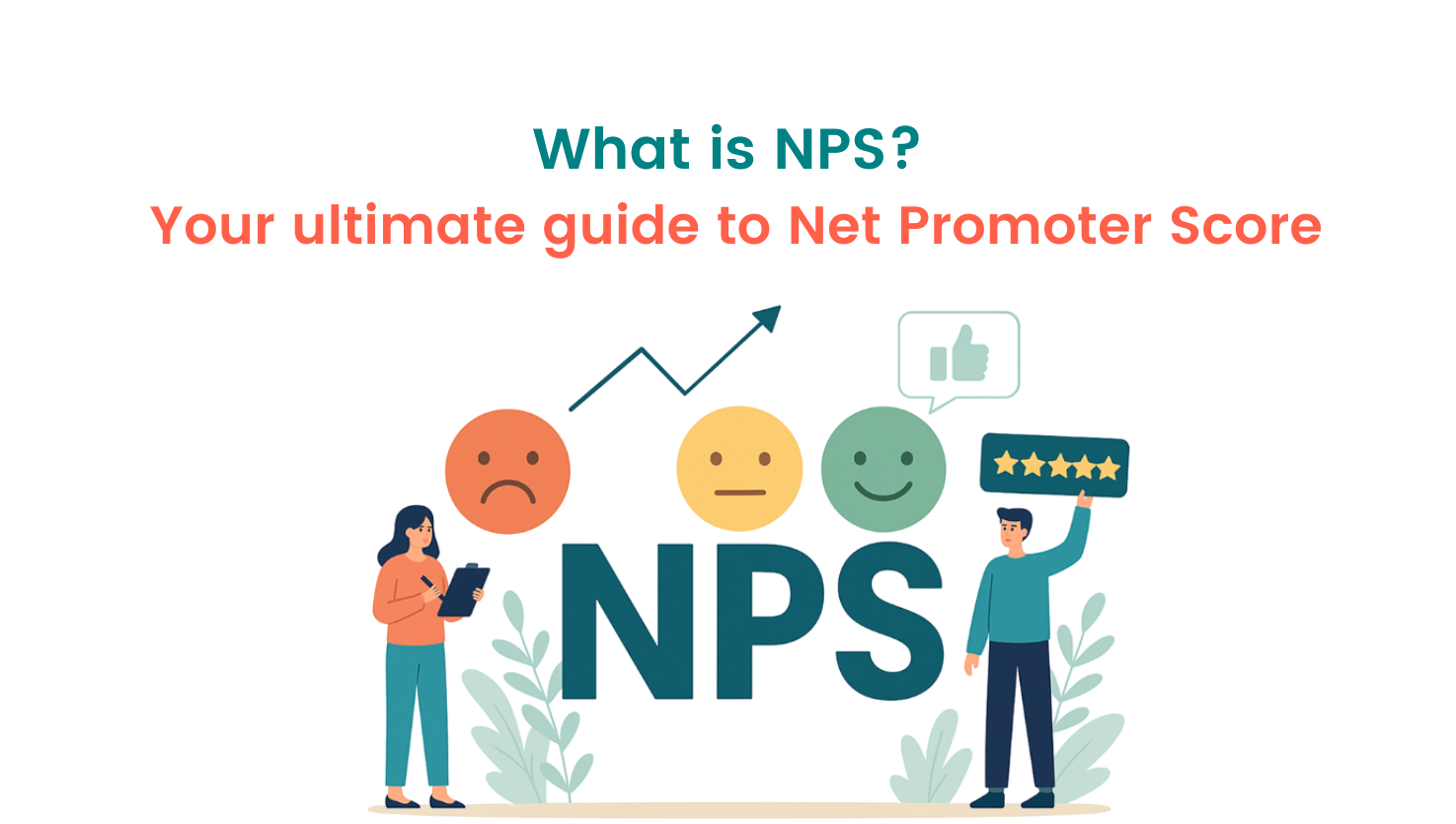Net Promoter Score, or NPS, is one of the simplest yet most effective ways to measure how loyal your customers really are. Introduced by Fred Reichheld back in 2003, it boils customer sentiment down to a single, powerful question:
“On a scale of 0–10, how likely are you to recommend our product or service to a friend or colleague?”
The strength of NPS lies in its simplicity. Instead of drowning in endless feedback forms, businesses get a clear number that reflects how customers feel, and, more importantly, how likely they are to spread the word. And when you think about it, that number says a lot. Studies show that companies with higher NPS scores grow two and a half times faster than their competitors (Qualtrics, 2024). Salesforce research also reveals that 80 percent of future profits come from just 20 percent of existing customers. In other words, loyalty is not just about repeat purchases, it’s about turning customers into advocates who bring new ones with them.
In this article, we’ll dive deeper into what NPS really means, how to calculate it, what counts as a good score, and why it has become such a vital measure of business growth. We’ll also look at practical ways to improve your NPS and see how eShipz’s innovative Failed Delivery Alternate Instructions Solution is helping companies strengthen customer trust and loyalty through better delivery experiences.
Understanding Your Customer Through NPS
Every brand has three kinds of customers, the cheerleaders, the fence-sitters, and the critics. NPS helps you see how many of each are in your customer base and what that says about your brand experience.
Promoters (9–10) are your biggest advocates. They’re the ones who not only love your product but also go the extra mile to recommend it to friends and colleagues.
Passives (7–8) are satisfied but not enthusiastic. They might like what you offer but could easily switch if a better option comes along.
Detractors (0–6) are dissatisfied customers who may share negative feedback or discourage others from choosing your brand.

The overall NPS score reflects the balance between those who uplift your brand and those who bring it down. A higher score indicates strong loyalty and positive customer experience, while a lower one signals areas that need attention and improvement.
So how is NPS calculated? The formula is as simple as it is powerful:
NPS = % of Promoters – % of Detractors
For example, imagine surveying 100 customers:
- 60 are Promoters
- 20 are Passives
- 20 are Detractors
NPS = 60% – 20% = +40
Now, that +40 isn’t just a number on a chart. It’s a reflection of how your customers actually feel about your brand. It shows that the majority not only enjoy your product or service but also believe in it enough to recommend it to others. At the same time, it highlights the voices of those who aren’t fully satisfied, giving you a chance to improve.
In other words, your NPS becomes more than just a metric, it’s a mirror of customer trust, loyalty, and the kind of experience you consistently deliver. And when tracked over time, it tells the real story of how your relationship with customers is evolving.
What is a Good Net Promoter Score?
Net Promoter Score, or NPS, is one of the simplest yet most powerful ways to understand customer loyalty. But when it comes to NPS, the question many businesses ask is: “What counts as a good score?”
The answer depends on your industry. Different sectors have different benchmarks because customer expectations vary. According to Qualtrics and Salesforce (2024), here’s how NPS typically measures up across some key industries:
From this table, it’s clear that what’s considered “good” in one industry might be just average in another.

General NPS Benchmarks
- Above 0 – A positive NPS means you have more promoters than detractors. This is generally considered a good starting point.
- Above 50 – Scores in this range are considered excellent and indicate strong customer loyalty.
- Above 70 – Achieving a score of 70 or higher is rare and usually considered world-class.
A good NPS doesn’t just reflect happy customers, it’s a snapshot of your business health. Promoters are not only loyal customers, they also actively recommend your product or service, which can drive organic growth. On the other hand, a higher number of detractors signals potential issues that need addressing.
While every business should aim for a higher NPS, it’s important to keep context in mind. Comparing your score against industry standards can help you set realistic goals, identify improvement areas, and ultimately build stronger customer relationships.
3 Types of Net Promoter Score (NPS)
Net Promoter Score (NPS) is one of the most effective ways to measure customer loyalty and satisfaction. It goes beyond simple feedback by showing how likely customers are to recommend your brand. However, NPS can be measured in different ways depending on what aspect of the customer experience you want to focus on.
1. Transactional NPS
Measured immediately after a specific customer interaction.
Purpose: Captures satisfaction with a particular experience, helping identify strengths and areas for immediate improvement.
2. Relational NPS
Measured periodically to gauge overall customer loyalty.
Purpose: Tracks long-term relationships and trust, providing insight into how customers perceive your brand over time.
3. Benchmark NPS
Used to compare a brand’s score against competitors.
Purpose: Provides context to assess market position and identify strategic areas for growth.
 Measuring NPS in these three ways allows brands to understand both short-term experiences and long-term loyalty while also benchmarking against competitors. By analyzing these insights together, businesses can make informed decisions, improve customer satisfaction, and strengthen their market position.
Measuring NPS in these three ways allows brands to understand both short-term experiences and long-term loyalty while also benchmarking against competitors. By analyzing these insights together, businesses can make informed decisions, improve customer satisfaction, and strengthen their market position.
Why Net Promoter Score is Important for Business Growth
In today’s competitive market, understanding how your customers feel about your brand is more critical than ever. Net Promoter Score (NPS) offers a clear and actionable way to measure customer loyalty and satisfaction, helping businesses make smarter decisions.
Key Benefits of NPS for Growth:
- Identify customer pain points early: NPS highlights areas where customers are dissatisfied, allowing timely intervention before small issues become major problems.
- Prioritize improvements in products and services: By listening to feedback, businesses can focus resources on what truly matters to customers, enhancing value and experience.
- Turn promoters into brand advocates: Loyal customers are more likely to recommend your brand, driving organic growth and increasing brand visibility.
- Save acquisition costs through stronger retention: Retaining happy customers is far cheaper than acquiring new ones, and NPS helps pinpoint who to nurture.
- Gain a competitive edge in crowded markets: Companies that act on NPS insights differentiate themselves by consistently exceeding customer expectations.
Measuring and acting on NPS is more than just a metric, it’s a strategy for sustainable growth. Businesses that truly listen to their customers are better positioned to innovate, retain loyalty, and outperform competitors.
How to Increase Your Net Promoter Score (NPS)
Having an NPS score is only the starting point. The real growth comes from taking action to improve it. Businesses that focus on boosting NPS see stronger customer retention, higher loyalty, and faster overall growth. Here’s how you can effectively raise your score:
Proven Strategies to Boost NPS:
- Close the Feedback Loop: Reach out to detractors, address their concerns, and show that their opinions matter. This not only resolves issues but also demonstrates commitment to customer satisfaction.
- Deliver Great First Impressions: A seamless onboarding experience or reliable first delivery can convert neutral customers into enthusiastic promoters.
- Strengthen Customer Support: Quick, empathetic responses leave lasting positive impressions and foster trust.
- Be Consistent Across Touchpoints: Reliability in products, services, and delivery builds long-term credibility and loyalty.
- Reward Loyal Customers: Loyalty programs, exclusive perks, or personalized recognition keep promoters engaged and motivated to spread the word.
- Use Technology to Prevent Issues: Proactive updates, automated notifications, or alternative delivery options reduce friction and prevent customer dissatisfaction before it arises.
Improving NPS is a continuous journey. By listening to your customers, acting on their feedback, and creating consistently positive experiences, your brand can turn satisfaction into advocacy and drive sustainable business growth.
eShipz: Smarter Deliveries with Alternate Instructions
Net Promoter Score reflects how customers feel about your brand, but even a single failed delivery can turn a positive experience into a frustrating one. Ensuring smooth, reliable deliveries is essential to keeping your customers satisfied and maintaining high NPS.
How eShipz Makes a Difference:
- Give Customers Flexibility: Customers can leave alternate instructions, such as delivering to a neighbor, a nearby pick-up point, or at a different time that suits them. This reduces frustration and makes the delivery process convenient.
Reduce Failures and Costs: By minimizing failed deliveries, businesses save on reattempts and associated expenses, while streamlining operations. - Enhance Overall Experience: Reliable deliveries create a consistent, worry-free experience for customers, which directly contributes to higher NPS.
With eShipz, every order reaches customers seamlessly, ensuring a hassle-free experience that strengthens satisfaction and keeps your NPS on the rise.
Turn Customer Experience into Growth
Every touchpoint with your customers counts, from the moment they explore your brand to the instant their order arrives at their doorstep. Even small improvements in these interactions can create a lasting impression, boosting your Net Promoter Score and driving meaningful growth for your business.
Imagine reducing failed deliveries, delighting customers with timely updates, and turning every shipment into a moment of joy. With smarter logistics, seamless tracking, and proactive delivery management, you can transform ordinary transactions into experiences your customers remember.
Don’t let your customers settle for “just delivered”, create moments they rave about!

